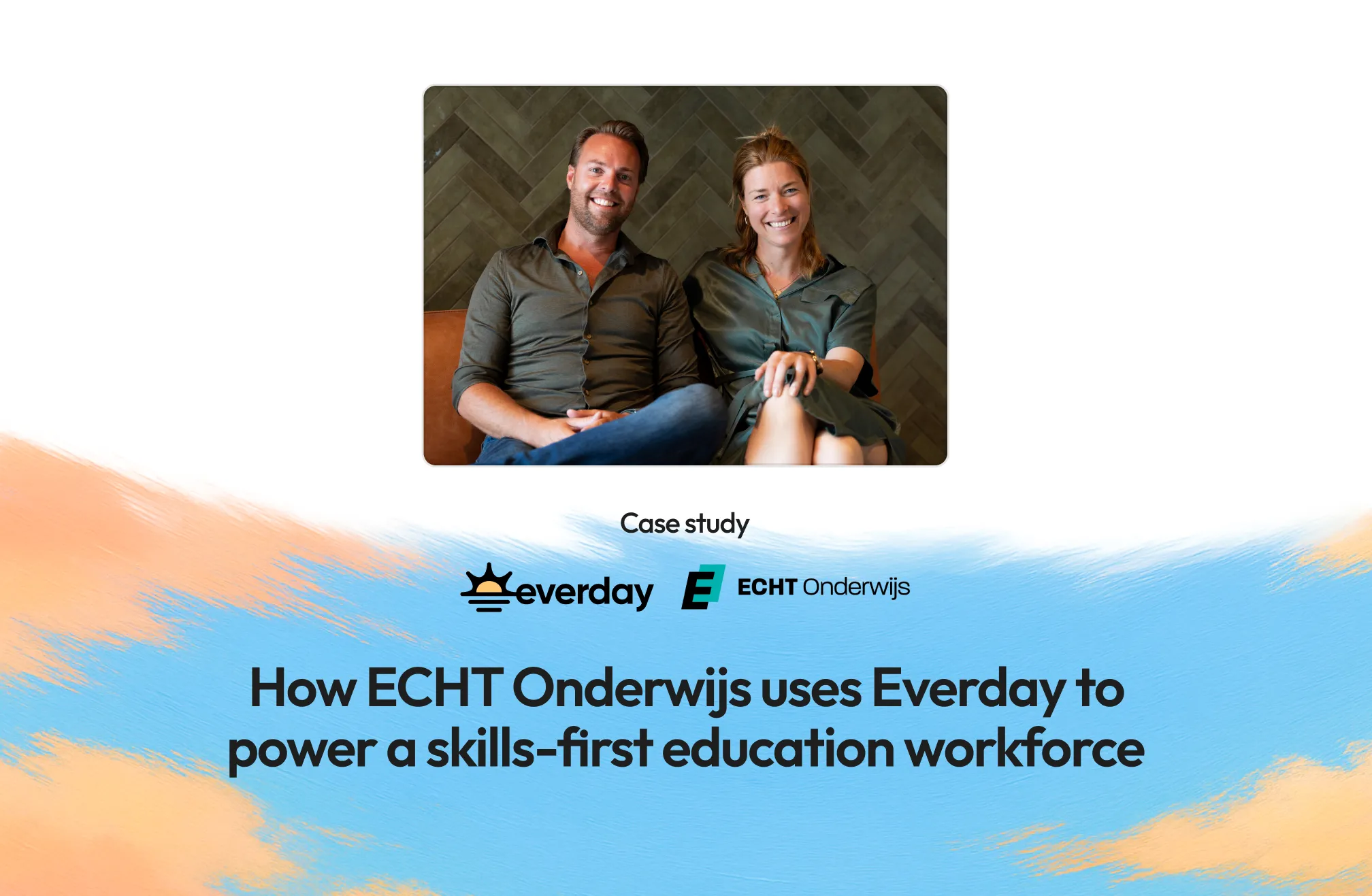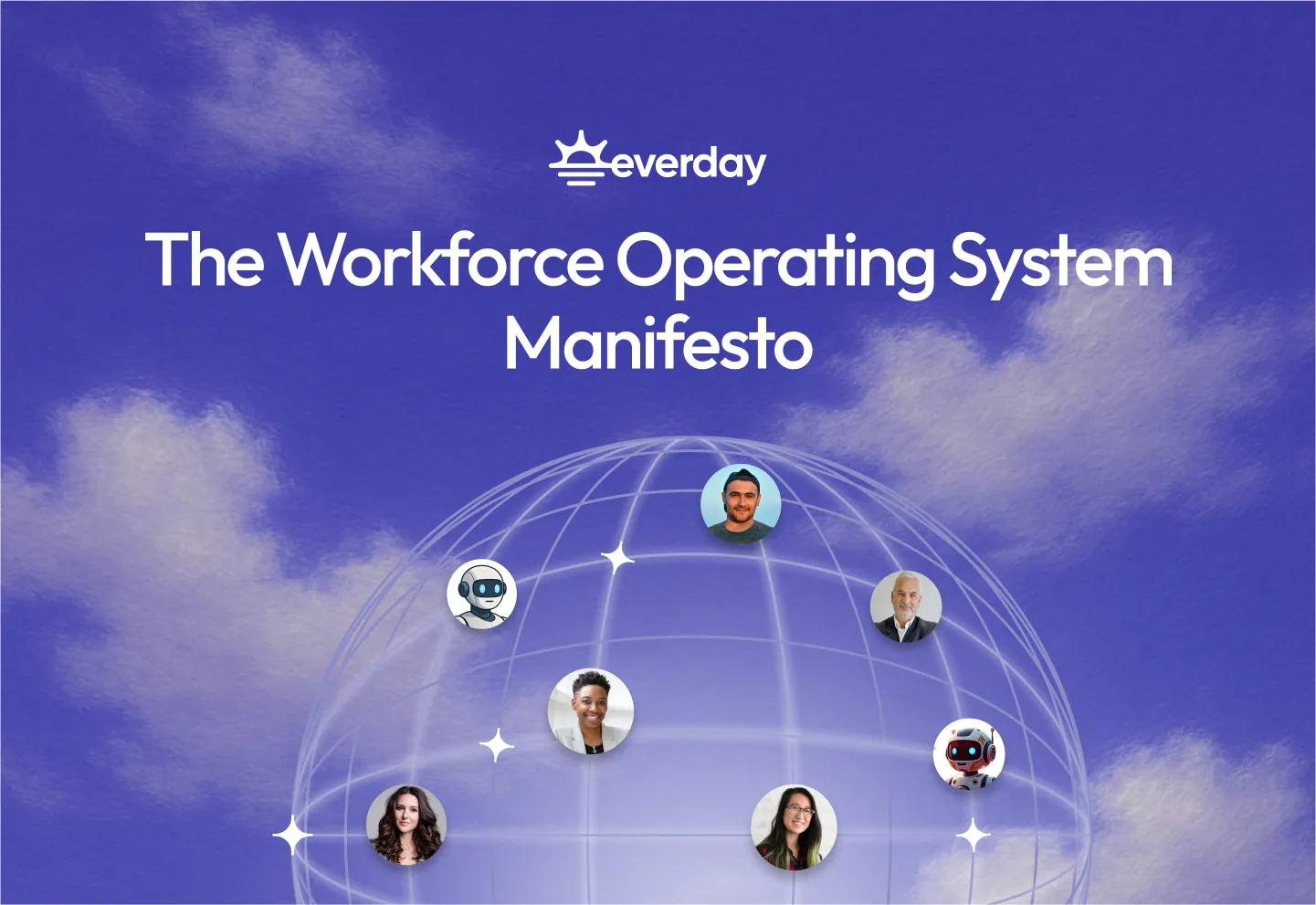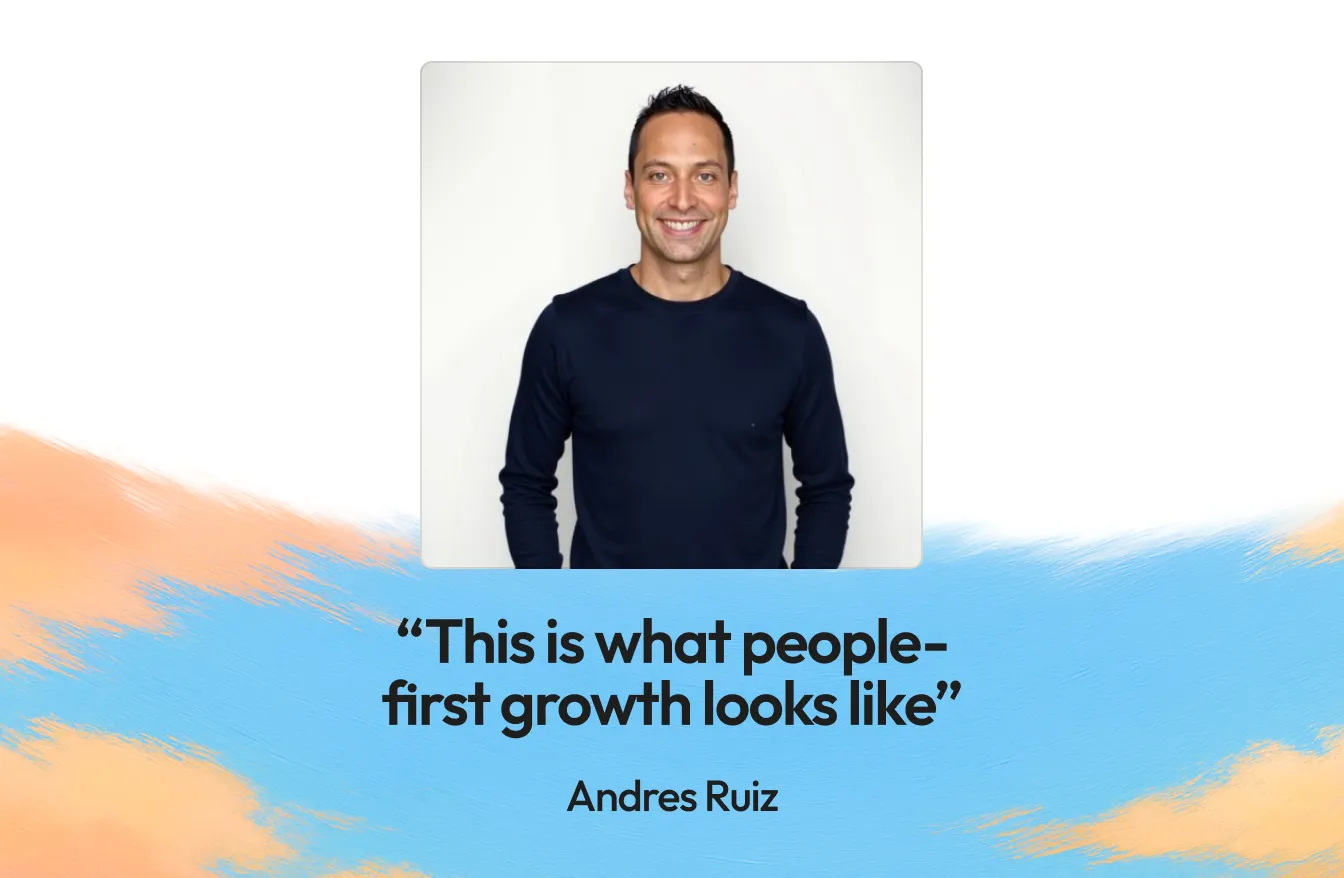
ECHT Onderwijs, led by Maurits Drenth, set out to change the teacher shortage problem.
Their mission is to help career switchers move into teaching by putting proven skills at the center and using qualifications to complete the picture.
With more than 35,000 people expressing interest in a teaching career, ECHT Onderwijs saw an opportunity: a talent pool full of motivated professionals who were often invisible to the system. The challenge was to prove that potential in a way schools could understand and trust.
The challenge: a system that does not see skills
ECHT Onderwijs supports professionals from sectors like communications and technology who want to enter education. Despite the interest, schools were hesitant. Formal teaching qualifications are a hard requirement in many cases, and there was no standard way to judge whether someone’s skills fit the role.
“There are plenty of people who want to work in education,” says Maurits.
“They just do not fit the traditional criteria. Yet they bring valuable skills that the sector needs.”
Assessments and data models existed to track progress, but there was no unified framework to translate a candidate’s experience into the language that schools and training institutions use. The gap slowed collaboration and delayed placements.
The partnership: from scattered data to one source of truth
ECHT Onderwijs partnered with Everday, our workforce intelligence layer that unifies people data and connects it to strategy. Together we built a shared foundation for skills-based hiring in education.
We linked Everday’s AI-native taxonomy, built on ESCO, to ECHT Onderwijs’s platform, EduSkills. This makes it possible to map a candidate’s skills directly to the competencies required for key roles in education.
“Everday did not just deliver a tool,” says Maurits.
“They adapted their model to our world and helped us translate our data into a format education leaders can work with.”
Through this connection, ECHT Onderwijs can generate a skills passport for every candidate. It shows how a person’s current abilities align with seven core teaching profiles, from teacher and learning assistant to school leader. Candidates see where they stand. Schools see who is ready. The conversation shifts from checking boxes to evaluating capability, with qualifications supporting a skills-based view.
The implementation: co-creating for context and speed
A shared entrepreneurial mindset accelerated the rollout. Both teams worked like founders with short feedback loops, pragmatic scoping, and decisions tied to real outcomes. This enabled a high-quality implementation at speed.
ECHT Onderwijs and Everday worked closely together to build an integration that fits real school workflows. The IT teams on both sides aligned data models, validated mappings, and hardened the sync.
“We extract part of Everday’s skills data and translate it into our own education language,” Maurits explains. “It gives us a living system that reflects how people grow and what schools actually need.”
Manual reports and disconnected tools were replaced by a single, consistent data layer. Recruiters use these insights in candidate conversations. Schools receive clear evidence of competence rather than lengthy documents or assumptions. Just as important, the platform anchored a shared language for the sector.
The results: from invisible skills to visible proof
Although we have only recently started, the outcomes are already tangible.
- A database of 35,000+ professionals interested in entering education
- Automatic matching of each candidate to seven core teaching profiles based on skills
- A skills-first view for schools that highlights readiness and growth potential, not only degrees
- A regional pilot in Rotterdam and surrounding areas helping schools rethink talent identification
- Recognition by the Dutch Skills Ambassade as the national demonstration project for education, supported by OCW, UWV, and NPuls
“We now have a foundation to talk to the sector in a new way,” says Maurits.
“A data-backed conversation about what someone can do, not only what is on paper.”
The work did more than streamline processes. It changed the story. A previously invisible group now has visibility, credibility, and a clearer path into teaching.
What is next: finding potential within schools
The next step is to apply the same approach inside schools. By mapping the skills of teachers and staff, ECHT Onderwijs aims to support succession planning, internal mobility, and better retention. Many future school leaders already work in the system. Making their potential visible turns workforce planning from reactive to proactive.
A new story for education
ECHT Onderwijs and Everday show that solving education’s talent problem is not only about finding more teachers. It is about recognizing the potential that is already there. When skills become visible, opportunity follows. When systems run on proof rather than paperwork, real change becomes possible.
Everday empowers your organization with skill insights
Empower your organization by aligning current skills with future needs. Everday provides dynamic visualisation and strategic alignment to keep you ahead.
14 day free trial, no credit card needed

Get your entire company's skill matrix
Everday's AI-powered skills mapping builds your company's skills matrix faster, and with greater accuracy than creating it manually with the traditional spreadsheets.

14 day free trial, no credit card needed







